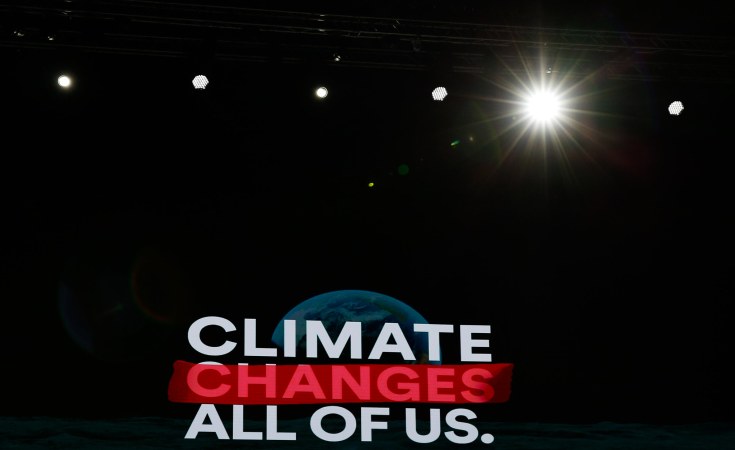Oslo — 'The proof of the pudding will be in the eating.'
Talks to set up a fund to pay for climate losses and damages were pushed online after extreme weather wreaked havoc across the United Arab Emirates, but the mood among attendees was broadly positive after the first board meeting concluded.
Held from 30 April to 2 May in Abu Dhabi, the meeting mainly dealt with procedural matters: Attendees told The New Humanitarian there was agreement on the need for disaster-affected communities to access the fund directly, and on the establishment of a secretariat to run it.
The thornier but fundamental issues of raising money and how to spend it are among many more contentious tasks - including the naming of the fund - that remain to be completed and will need to be addressed at later meetings.
The event highlighted the massive workload of interconnected moving parts the board must navigate to launch a fund from scratch. This spans everything from how it will work and who it will fund, to its governance and accountability - any of which could trigger disagreements.
After a hard year of negotiations, the world agreed to launch the loss and damage fund at the COP28 UN climate summit in Dubai, UAE, last December. Loss and damage has long been a controversial topic because it requires huge amounts of money - which supporters say is compensation for historical climate change-induced damages - from wealthier, high-polluting countries.
For decades, many big polluters rejected out of hand the concept of climate liability and the prospect of paying up the billions of dollars needed to repair climate damages. Until very recently, many were still resistant, and some are still accused by climate activists of stalling on their contributions.
Following the COP28 agreement, the fund's board was assembled to decide the institution's policies; its decisions will be approved by governments at COP29 this November. Due to delays and the big task of launching a new institution, experts say the fund is not expected to start disbursing money until 2025 at the earliest.
The board must first decide on the nitty gritty of how the fund will work in practice, with its members having to navigate competing visions for how the money should be spent.
Existing institutions like the Green Climate Fund, which mainly finances projects aimed at reducing emissions or adaptation, have been widely criticised as too slow and complex to properly help Global South countries struggling with climate change.
As well as addressing climate-related loss and damage, the COP decisions that created the fund "indirectly deal with major structural flaws in international financing architecture that ultimately both perpetuate and exacerbate loss and damage", said Dan Lund, the board member representing Fiji.
In the short term, one of the most critical issues to be resolved is the role of the World Bank, which was asked to host the fund's secretariat on a temporary basis for at least four years. This request was passed at COP28 but originally came from the United States - one of the countries historically most opposed to loss and damage - and at the time it sparked major concern among activists and some officials from countries in the Global South.
While the fund's board will make the decisions, including around funding and eligibility, some campaigners still worry that the World Bank could be used as a tool to exercise the influence of its biggest shareholder, the US, and other higher-income, high-polluting countries.
The Bank "showed flexibility in meeting all the requirements, including direct access for communities and countries" at the meeting, according to Harjeet Singh, a climate activist who observed the talks and who previously campaigned against the Bank's role. But Singh warned: "The proof of the pudding will be in the eating when it actually delivers after becoming the host of the fund."
The Bank is expected to confirm in June if it can meet the conditions demanded by the fund's board and provide details in August. These include allowing the fund to establish its own eligibility criteria, guaranteeing that the fund's governing instruments - the legal documents that define and guide an organisation - supersedes the Bank's policies where they differ, and ensuring that the board can choose its executive director.
Other institutional issues for the board to resolve include choosing a host country for the fund, forming a permanent secretariat, and choosing an executive director. A UN dialogue process will take place with the aim of ensuring the fund fits in well with the wider landscape of multilateral bodies.
Edited by Irwin Loy.
Will Worley, Staff reporter and editor for policy


